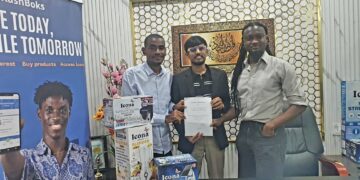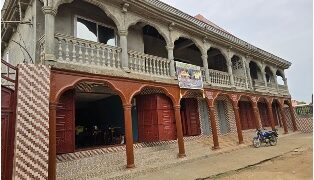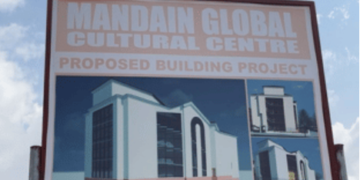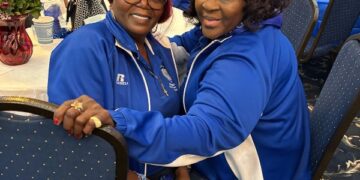By Alpha Amadu Jalloh
Mr. President, I want to bring to your attention a matter of immense importance that has been at the heart of many discussions among Sierra Leoneans in the diaspora. These are men and women who, despite living miles away from their homeland, contribute significantly to Sierra Leone’s economy, not as business partners but because of their bloodline and the love they have for their families and the nation. Yet, they are systematically excluded from a fundamental democratic right: the right to vote and be voted for.
This shouldn’t be strange to you, Mr. President. In fact, during your campaign, much like Dr. Kandeh Yumkella “The Prince,” you made several promises to Sierra Leoneans living abroad. You assured them that under your leadership, they would finally have the right to participate in elections. Many Sierra Leoneans had grown tired of the APC and were desperate for change. They were hoping to dismantle the duopoly that both the SLPP and APC had held over Sierra Leone’s political spectrum for decades. These promises sparked hope, and yet, to this day, you have failed to deliver on that commitment.
Let’s not pretend that Sierra Leoneans in the diaspora are insignificant to the development of our nation. Around the world, countries are recognizing their expatriates as key contributors to national building. Remittances from Sierra Leoneans abroad form a significant portion of the economic lifeblood in our country, and they often provide for their families while also supporting various developmental initiatives. Mr. President, you can bear witness to the fact that 80 to 90 percent of the funds that supported your election campaign came from the diaspora. In fact, a glance at your administration reveals that nearly 75 percent of your government officials hail from the diaspora. Ironically, while they may sit in positions of power, many of them have failed to bring any tangible change, enriching themselves instead of benefiting the country.
Now, let’s talk about the “Citizenship Act.” The Sierra Leone Citizenship Act of 1973 originally did not permit dual citizenship. However, this was amended in 2006, allowing Sierra Leoneans to hold dual citizenship under Section 5 of the Amendment Act. This legal change was supposed to enable Sierra Leoneans abroad to access basic rights accorded by both their country of origin and their host countries. But Mr. President, while I am not a lawyer, I want to ask you: what does “basic rights” mean if it doesn’t include the right to vote and be voted for?
Dual citizens in Sierra Leone enjoy the same rights as those living in the country. They contribute significantly to the development of Sierra Leone in many ways, economically, socially, and even politically. Why, then, are they denied the right to exercise their political voice? How can we allow them to be full participants in other areas of life and yet strip them of the right to vote simply because they live abroad?
The irony here is glaring. You want their financial support, but you will not grant them the rights they deserve. This is the same financial support that funded your campaign—that builds homes, supports businesses, and sustains families across Sierra Leone. Yet when it comes to elections, they are pushed to the side.
During a recent conversation with a former Member of Parliament, I was told quite bluntly that Sierra Leoneans overseas would never be allowed to vote. Why? Because they pose a threat to the political status quo. The parliamentarian said, “If we allow serious diasporans to flood parliament, it will upset the balance and expose the weaknesses of our current system.”
Mr. President, this kind of thinking is a threat to democracy. Sierra Leoneans living abroad should not be seen as a threat; they should be seen as valuable assets. They have a unique perspective that could only enrich our political discourse. If the parliamentarians and political elites are truly fit for office, they should not feel threatened by the participation of their compatriots abroad. In fact, they should welcome it.
It is high time that we, as a nation, revisit the Citizenship Act and create space for our brothers and sisters in the diaspora to vote and be voted for. If other African nations can manage this, why can’t Sierra Leone? Implementing a voting system for diasporans is not beyond the reach of our government. If we can afford the frequent and often frivolous travels of government officials abroad, surely we can afford to fund a voting system through our embassies.
Mr. President, I appeal to you and to the parliamentarians: Be bold. Do not feel threatened by opening up the political space. Sierra Leoneans in the diaspora deserve to participate fully in the democratic process. They are not outsiders; they are our brothers and sisters. They are part of the fabric of our nation.
To the Sierra Leoneans abroad who continue to sing your praises, campaign for you, and financially support your efforts: it is time to wake up. See through the façade. You are celebrated when your money is needed but ignored when it comes to granting you the rights and respect you deserve. I say to you, do not settle for crumbs when you should be enjoying the full meal of citizenship. If the government is sincere about including you, it will grant you the same rights afforded to every other Sierra Leonean, whether you are in Freetown, Bo, or Washington, D.C.
Mr. President, you have the opportunity to change the course of history for the better. Sierra Leone cannot afford to leave out a group as vital as our diaspora. Let us create a country that truly embraces all its citizens, no matter where they are in the world.
It’s time to let Sierra Leoneans abroad have a voice in the destiny of their homeland.

























